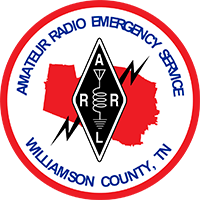The following information was posted on Jan. 27, 2015 on the APCO (Association of Public Safety Communications Officials) Open Forum Digest by Jim Szalajeski, and Jim has graciously consented for us to re-post it here on the WCARES website.
Jim works for Tusa Consulting Services in Folsom, LA, and has done a good amount of work with the public safety agencies over the ages. He has installed equipment in many dispatch centers around the country, and has a good understanding of how they operate and the issues they face on a daily basis.
My reason for reproducing his post here is to give us an idea of the types of situations where Williamson County’s 911 center (also called the PSAP or Public Service Answering Point) may need the help of backup systems and processes to continue to provide services.
Here is his post:
“What you need to look at is to make sure that it [your backup PSAP] is not served by the same telephone central office. Also make sure that it is not on the same telephone cable that currently feeds your active PSAP. This way you can at least try to build in diversity as best as you can.”
“If you look at the issues that have caused PSAP locations around the country to fail, most are due to cable cuts and central offices having equipment failures. The rest that have occurred can have fingers pointed to bad software programming by the service provider of the telephone switches. You have little control over these problems. Plus under heavy volume calling almost anything can happen with the 911 calling system. Your central office locally is only a small part of the 911 calling system you use. There is a good amount of switching that takes place that is not even in your state for each call. Again, you have no control over how the calls are originally routed.”
“Power failures at the telco switching offices can play a part in the 911 call failures. Remember the big riff that took place a number of years back when a good portion of Northern Virginia went down due to the high winds. The high winds fell a large number of trees that caused massive power outages. This then caused a high number of the telco central offices to go off line due to generator failures. Most of the generator failures were due to lack of being maintained and the fuel tanks not being full. What ever the reason was for no fuel, it not only took out the 911 system, but killed a number of T1 circuits that fed the radio system towers. This then caused the dispatch centers to lose primary connection to the much needed radio tower sites. In several cases, the 800 trunking systems then failed as the tower site equipment couldn’t talk to the central trunking controllers.”
“This then showed how weak the radio trunking systems were that relied on telephone T1 circuits to connect to the towers. Those that had their own microwave connections to the towers didn’t have the T1 failures that the agencies using leased T1 circuits did. In the long run, microwave is much more reliable and cheaper, but the up front costs are greater.”
“The best you can do is to make sure you have the emergency numbers to call for when you do have a 911 switching failure. Call those numbers at least once a week to make sure they are still valid and are working. Don’t do it on a Monday morning as this is the time most agencies hold staff meetings.”
“Make sure you have a backup way to dispatch over the radio if your connections from the dispatch location to the radio towers fail. Many dispatch centers install a mobile radio at each dispatch console just for this reason. If you also use paging for the different fire departments, make sure you have a way to connect a pager encoder to these backup radios.”
“I am not a big fan on failure percentage numbers. It means more to just have a plan B available to keep operational. In many cases, it might also mean a plan C and D to maintain some sort of operational ability. Don’t forget about testing and maintaining backup power for your PSAP and backup PSAP. These need to be tested under load every week to make sure both the generator and auto transfer switches work. Run the generators for about 20 to 30 minutes. This heats up the engine and removes any moisture that collects in the crankcase and oil. Otherwise you can end up with a mess in the oil that can look like a chocolate milkshake. If your oil gets like this, your going to do damage to the engine due to lack of lubrication.”
“This may sound like a whole bunch of things to take into account. But if you want to stay operational, they all fit and work together.”
Jim Szalajeski
Radio Systems Consulting
Tusa Consulting Services
Folsom, LA
